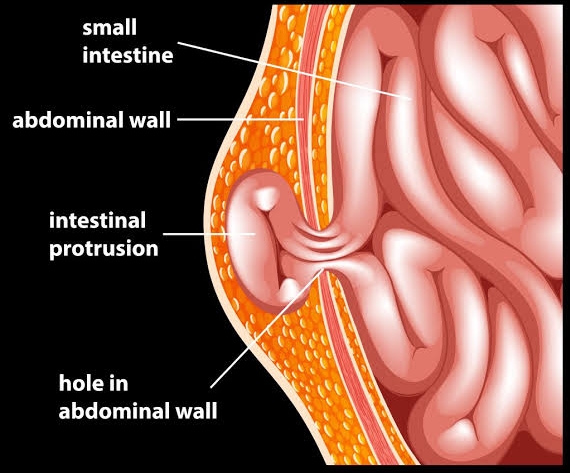Lapsurgery.com.au, How to Prevent Hernia – Hernia occurs when an organ or tissue protrudes through a weak spot in the surrounding muscle or connective tissue. While some factors contributing to hernias are beyond our control, adopting certain lifestyle changes can significantly reduce the risk of developing this condition.
Maintaining a Healthy Body Weight Can Prevent Hernia

Excess body weight puts strain on muscles and increases the likelihood of hernias. Adopt a balanced diet and regular exercise to achieve and maintain a healthy weight.
Strengthen Core Muscles:
Engage in exercises that target the muscles of the abdomen and lower back. Building a strong core provides essential support to the abdominal wall, reducing the risk of hernia formation.
Lift Properly:
When lifting heavy objects, use proper lifting techniques. Bend at the knees, keep the back straight, and lift with the legs rather than the back. This technique minimizes stress on the abdominal muscles.
Avoid Straining During Bowel Movements:
Straining during bowel movements can increase abdominal pressure. Ensure an adequate intake of fiber and fluids in your diet to promote regular bowel movements and prevent unnecessary straining.
Quit Smoking:
Smoking contributes to the weakening of connective tissues, making individuals more susceptible to hernias. Quitting smoking not only benefits overall health but also reduces the risk of hernia development.
Maintain Good Posture:
Poor posture can strain the muscles and contribute to the development of hernias. Be mindful of your posture, especially when sitting or standing for extended periods.
Address Persistent Coughing:
Chronic coughing increases abdominal pressure and can contribute to the formation of hernias. If you have a persistent cough, seek medical advice to identify and address the underlying cause.
Stay Hydrated:
Proper hydration is essential for maintaining the elasticity of muscles and connective tissues. Adequate water intake helps prevent the weakening of tissues that can lead to hernias.
Regular Health Check-ups:
Schedule regular check-ups with your healthcare provider. Early detection of conditions that may predispose you to hernias, such as chronic respiratory issues or connective tissue disorders, can aid in preventive measures.
Listen to Your Body:
Pay attention to any signs of strain or discomfort in the abdominal area. If you experience persistent pain or notice unusual bulging, consult a healthcare professional promptly.
Frequently Asked Questions: How to Prevent Hernia
1. What is a hernia, and how does it occur?
A hernia occurs when an organ or tissue pushes through a weak spot in the surrounding muscle or connective tissue. It can happen due to a combination of factors, including muscle weakness and increased abdominal pressure.
2. Can hernias be prevented?
While not all hernias can be prevented, adopting certain lifestyle changes can reduce the risk. Maintaining a healthy weight, strengthening core muscles, and practicing proper lifting techniques are effective preventive measures.
3. How does maintaining a healthy weight help prevent hernias?
Excess body weight puts strain on muscles, increasing the risk of hernias. Maintaining a healthy weight through a balanced diet and regular exercise helps reduce this strain and lowers the likelihood of hernia development.
4. What exercises can help strengthen core muscles to prevent hernias?
Exercises such as planks, bridges, and leg raises can effectively target and strengthen the muscles of the abdomen and lower back. A strong core provides essential support to the abdominal wall.
5. Are there specific lifting techniques to prevent hernias?
Yes, when lifting heavy objects, bend at the knees, keep the back straight, and lift with the legs rather than the back. This technique minimizes stress on the abdominal muscles, reducing the risk of hernia formation.
6. Does smoking contribute to hernias?
Yes, smoking weakens connective tissues, making individuals more susceptible to hernias. Quitting smoking not only promotes overall health but also reduces the risk of hernia development.
7. How can good posture help prevent hernias?
Maintaining good posture reduces strain on muscles and connective tissues, minimizing the risk of hernia development. Be mindful of your posture, especially during prolonged periods of sitting or standing.
8. Can chronic coughing contribute to hernias?
Yes, chronic coughing increases abdominal pressure and can contribute to hernia formation. Addressing the underlying cause of persistent coughing is important in preventing hernias.
9. Is there a connection between hydration and hernia prevention?
Proper hydration is crucial for maintaining the elasticity of muscles and connective tissues. Adequate water intake helps prevent the weakening of tissues that can lead to hernias.
10. How often should I have health check-ups to monitor hernia risk?
Regular health check-ups with your healthcare provider allow for early detection of conditions that may increase the risk of hernias. This proactive approach helps in implementing preventive measures.
11. What signs should I be aware of that might indicate a hernia?
Watch for persistent pain or unusual bulging in the abdominal area. If you experience such symptoms, consult a healthcare professional promptly for a thorough evaluation.

